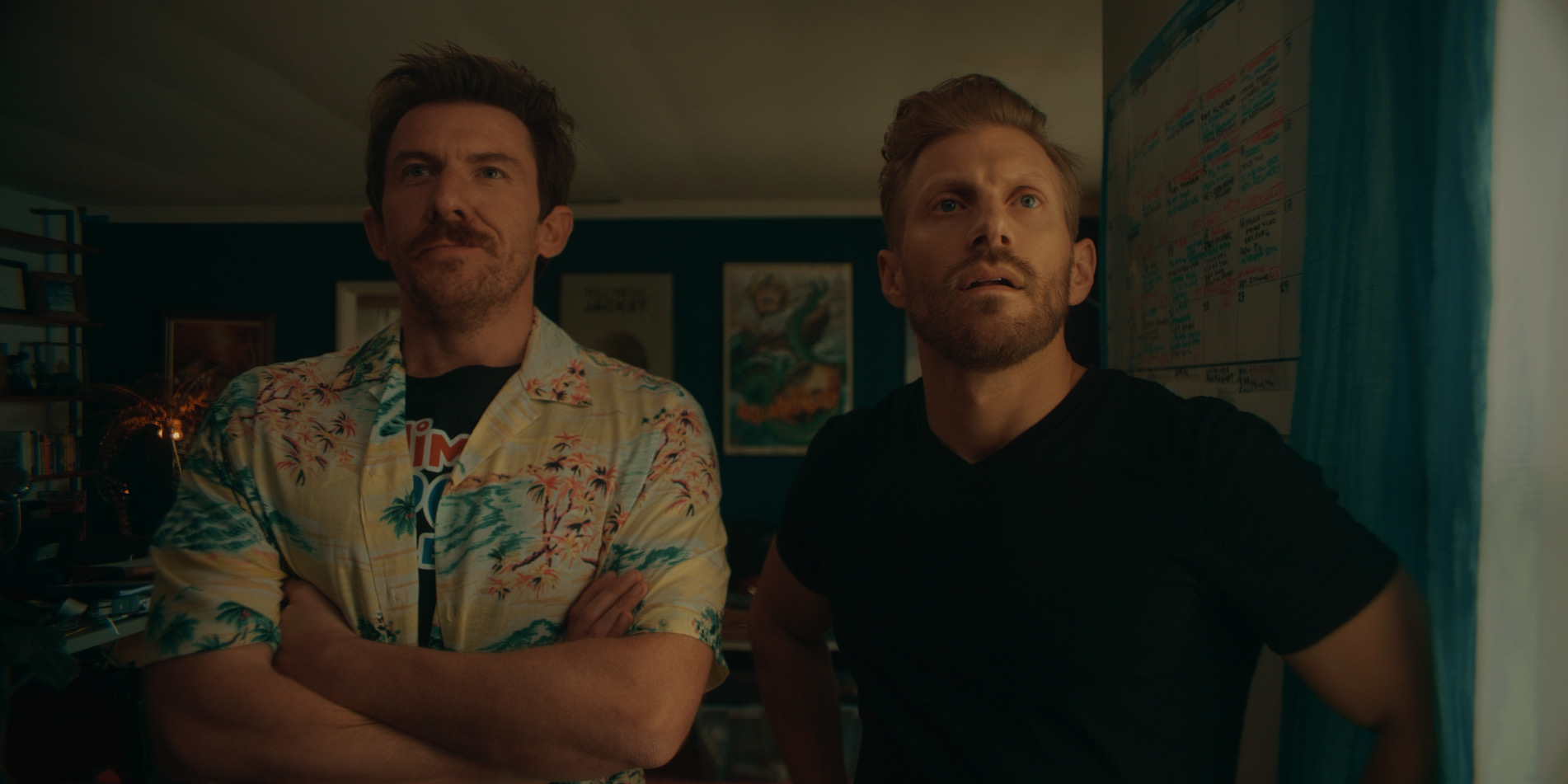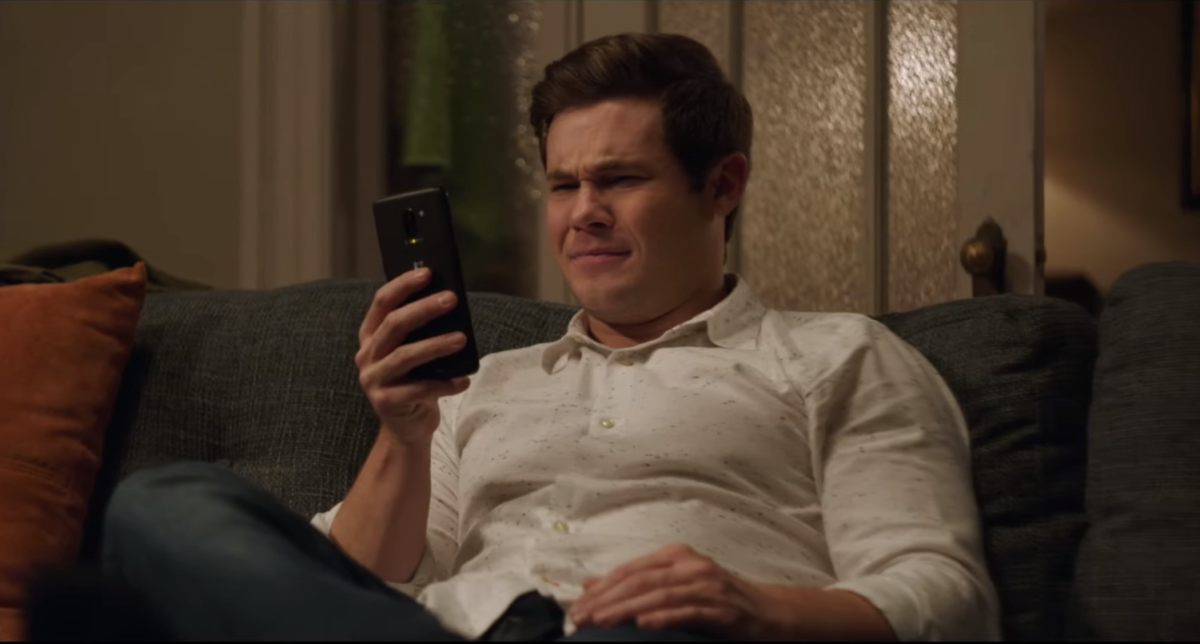Faith Ba$ed
by Hope Madden and George Wolf
I have seen Faith Ba$ed and I am outraged.
People that haven’t seen it are outraged, and you know what that is?
Outrageous, but not surprising.
According to writer and co-star Luke Barnett, people are upset at just “the idea of it.” And that’s an ironic protest that actually speaks more negatively about the Christian film industry than anything in this actual movie.
Barnett and director Vincent Masciale, both Funny or Die veterans, are more interested in the goofy exploits of two lifelong friends in California who are having trouble adjusting to adulthood.
Tanner (Tanner Thomason) is a ladies man bartender whose life goals don’t extend beyond drinking and hanging out with friends. Luke (Barnett) cleans pools while peddling the weight loss tea pyramid scheme of his entrepreneurial idol Nicky Steele (Jason Alexander in a bonkers cameo).
Luke and Tanner are big movie fans, and when they discover just how profitable the faith-based market is, a plan emerges. If they can make their own “Jesus” film and sell it to ChristFlix pictures, there should be more than enough profit to stuff their pockets and help out the local Elevate Church where Luke’s father (Lance Reddick) is the pastor.
The big question: can the boys snag Butch Savage (David Koechner, bonkers himself), the action hero from their youth, for the pivotal role?
Masciale, helming his second feature, brings an irresistibly absurdist vibe to the shenanigans that practically begs you not to overthink any of it. Sometimes we get character interviews as per a mockumentary, sometimes we don’t. The continuity and internal logic gets shaky at times, all of which falls perfectly in line with the movie within this movie.
Good-natured fun is certainly had at the expense of the faith-based industry. Margaret Cho’s appearance as a ChristFlix executive running down the rules of Christian films is every bit the bullseye of the horror rules in Scream, and the big Christian yacht rock concert (pay attention to those lyrics!) is subtle perfection.
But it’s the continued success of the Christian entertainment industry that makes it ripe for satire. And while Faith Ba$ed uses the setting to great advantage, its knives are never out for the believers themselves.
Because you know what else Barnett’s script gives us? A church community that is welcoming to all, one where people missing something in their lives can and do find real fulfillment.
And it gives us plenty of laughs, memorable quotes and overall nuttiness at a time when we could use it.
Oh, the outrage.













